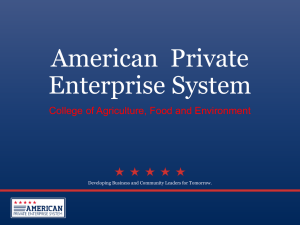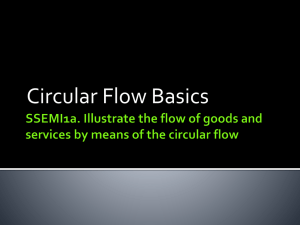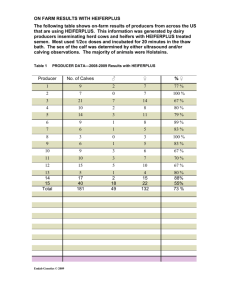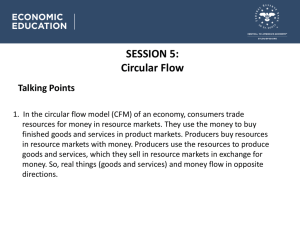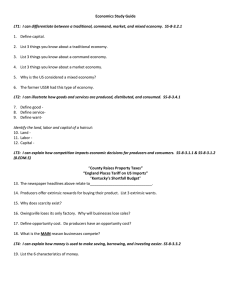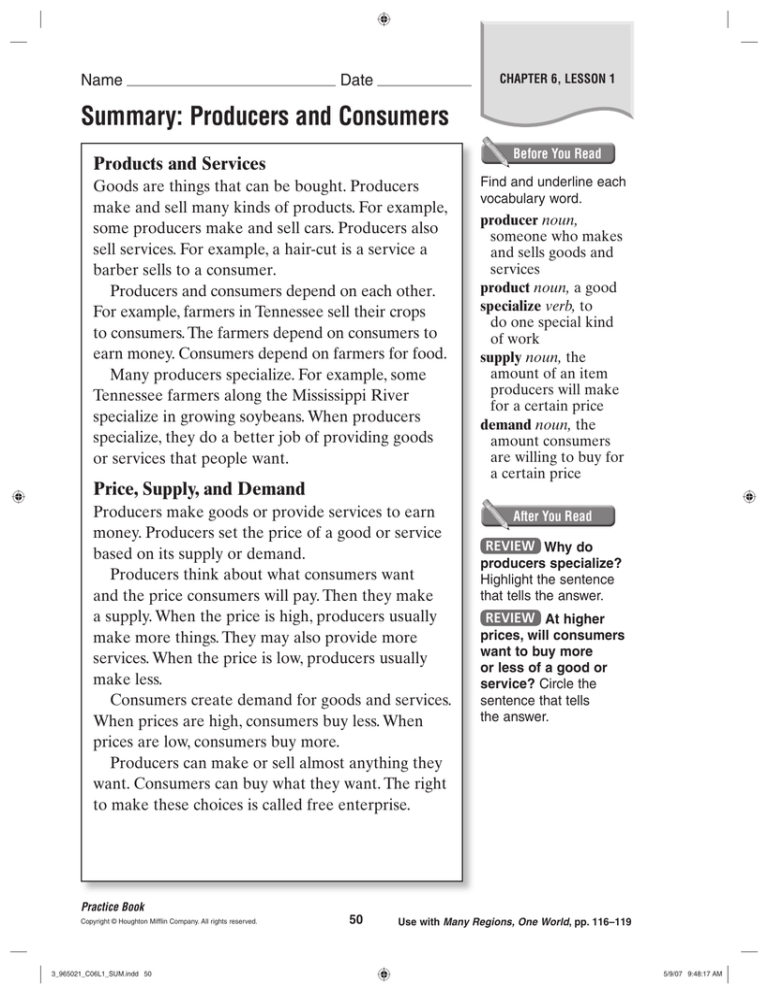
Name
CHAPTER 6, LESSON 1
Date
Summary: Producers and Consumers
Products and Services
Goods are things that can be bought. Producers
make and sell many kinds of products. For example,
some producers make and sell cars. Producers also
sell services. For example, a hair-cut is a service a
barber sells to a consumer.
Producers and consumers depend on each other.
For example, farmers in Tennessee sell their crops
to consumers. The farmers depend on consumers to
earn money. Consumers depend on farmers for food.
Many producers specialize. For example, some
Tennessee farmers along the Mississippi River
specialize in growing soybeans. When producers
specialize, they do a better job of providing goods
or services that people want.
Price, Supply, and Demand
Producers make goods or provide services to earn
money. Producers set the price of a good or service
based on its supply or demand.
Producers think about what consumers want
and the price consumers will pay. Then they make
a supply. When the price is high, producers usually
make more things. They may also provide more
services. When the price is low, producers usually
make less.
Consumers create demand for goods and services.
When prices are high, consumers buy less. When
prices are low, consumers buy more.
Producers can make or sell almost anything they
want. Consumers can buy what they want. The right
to make these choices is called free enterprise.
Find and underline each
vocabulary word.
producer noun,
someone who makes
and sells goods and
services
product noun, a good
specialize verb, to
do one special kind
of work
supply noun, the
amount of an item
producers will make
for a certain price
demand noun, the
amount consumers
are willing to buy for
a certain price
REVIEW Why do
producers specialize?
Highlight the sentence
that tells the answer.
REVIEW At higher
prices, will consumers
want to buy more
or less of a good or
service? Circle the
sentence that tells
the answer.
Practice Book
Copyright © Houghton Mifflin Company. All rights reserved.
3_965021_C06L1_SUM.indd 50
50
Use with Many Regions, One World, pp. 116–119
5/9/07 9:48:17 AM


